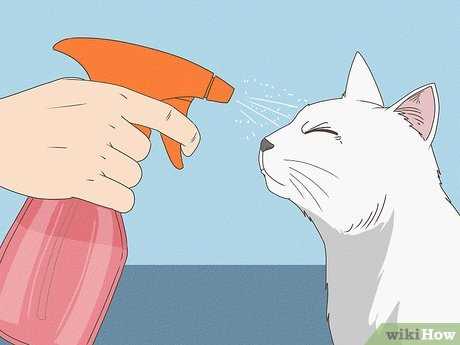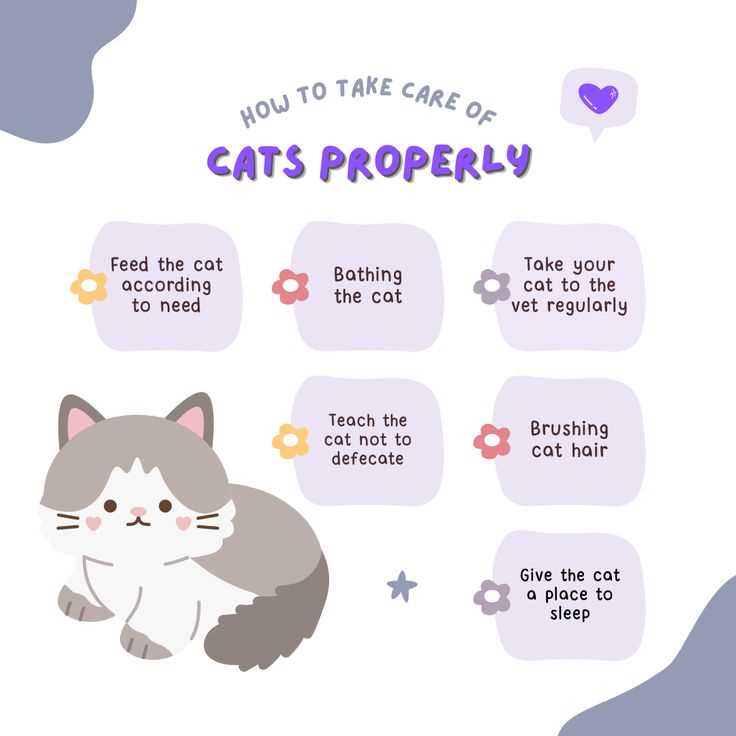



Owning a feline friend requires commitment, but it’s manageable with the right approach. My daily routine involves regular feeding, which means high-quality kibble or wet food twice a day. It’s important to monitor portion sizes to maintain a healthy weight and avoid overfeeding.
Keeping my litter box clean is another essential task. A clean environment encourages me to use it consistently. Daily scooping and a thorough clean every week help prevent any unwanted odors and keep my living space pleasant.
Routine veterinary check-ups are a must. Annual vaccinations and health screenings ensure that I stay in tip-top shape. It’s wise to budget for these visits, as they can add up over time, but they’re crucial for my long-term well-being.
Engaging with me through playtime is vital for my happiness. Interactive toys, feather wands, and laser pointers stimulate my instincts and keep me active. Spending at least 15-30 minutes each day on play helps strengthen our bond and keeps me mentally sharp.
Lastly, providing a cozy and safe environment is key. I love having a designated space with a warm bed, scratching posts, and perches to observe my kingdom. Creating a stimulating atmosphere with toys and climbing structures can greatly enhance my quality of life.
How Hard Is It to Care for a Cat

Cleaning my litter box is a daily task. It’s essential to scoop it at least once a day to keep my space fresh. If left unattended, it can lead to unpleasant odors and might make me reluctant to use it.
Feeding is another aspect that requires attention. I need high-quality food tailored to my age and health needs. Regular feeding times help maintain my routine, ensuring I’m not overindulging or missing meals.
Regular vet visits are crucial for my health. Vaccinations and check-ups help prevent diseases. Maintaining a schedule for these appointments is important for my well-being.
Grooming is also a task that can’t be overlooked. My coat needs brushing to prevent matting and reduce shedding. This keeps my fur looking its best and helps avoid hairballs.
Providing mental stimulation is necessary. Interactive toys and playtime help keep me engaged and active, reducing the risk of boredom-related behaviors like scratching furniture.
Finally, creating a safe environment is key. Ensuring harmful items are out of reach and providing a cozy spot for me to rest can significantly enhance my quality of life. Attention to these details makes living together enjoyable for both of us.
Understanding the Daily Care Requirements of Cats
It’s essential to provide consistent attention to feeding, grooming, and social interaction. Here’s what you need to focus on daily:
Feeding Routine

- Offer high-quality cat food tailored to your age and health needs.
- Maintain a consistent feeding schedule, ideally twice a day.
- Ensure fresh water is available at all times; clean the bowl daily.
Grooming Practices
- Brush regularly to reduce shedding and prevent matting, especially for long-haired breeds.
- Check ears and teeth weekly; clean if necessary.
- Trim nails every couple of weeks to avoid overgrowth.
Daily playtime is crucial for mental stimulation and exercise. Engage with interactive toys or simple games. Regular vet check-ups will also help maintain your health.
If you’re considering products like is doggijuana safe for cats, ensure they are suitable for your feline friend.
Managing Health and Veterinary Needs for Your Cat
Scheduling regular veterinary visits is non-negotiable. Aim for annual check-ups, and more frequent trips for kittens or older felines. A reliable vet will monitor my weight, dental health, and overall condition, ensuring I stay fit and happy.
Vaccinations are crucial. Keep track of my vaccination schedule. Core vaccines protect against serious diseases like feline viral rhinotracheitis and calicivirus. Discuss with your vet about additional vaccines based on lifestyle and environment.
Preventative measures against parasites are essential. Monthly treatments for fleas, ticks, and worms can save a lot of trouble later. Your veterinarian can recommend suitable products tailored to my specific needs.
Dental health impacts my well-being. Regular teeth brushing is advisable, along with dental treats that promote oral hygiene. Professional cleanings may be necessary, especially as I age.
Monitoring my behavior is key. Changes in appetite, litter box habits, or energy levels can indicate underlying issues. Prompt attention to these signs can lead to early diagnosis and treatment, ensuring my continued health.
Nutrition plays a significant role. Consult with a vet to determine the best diet for my age, weight, and health status. High-quality food can prevent obesity and related health problems.
Keeping my environment safe is vital. Remove harmful plants and secure areas where I might get into trouble. Regularly check for any hazards that could cause injury or stress.
Lastly, spaying or neutering is a responsible choice. This not only helps control the pet population but also contributes to better health and behavior outcomes.
Dealing with Behavioral Issues and Training Challenges

When my human notices me displaying unwanted behaviors, the first step is to identify the cause. For instance, if I’m knocking over plants, it’s often due to boredom or curiosity. Providing engaging toys or interactive playtime can redirect my energy positively. If you’re curious about why I might munch on your flowers, check out why does my cat eat my flowers.
Another common issue is litter box avoidance. It’s essential to ensure my litter box is clean and placed in a quiet, accessible location. If I’m avoiding it, consider trying different types of litter or boxes. Sometimes, a change in environment can make a big difference.
Training can be tricky, but consistency is key. Using positive reinforcement helps me learn desired behaviors. Treats or praise work wonders when I do something right. If I’m struggling with scratching furniture, providing scratching posts and rewarding me for using them can make a big difference.
Understanding my body language is crucial too. If I’m hissing or swatting, it’s my way of saying I’m uncomfortable. Respecting my space and giving me time to calm down is important to maintain a harmonious home.
Owning a feline friend requires commitment, but it’s manageable with the right approach. My daily routine involves regular feeding, which means high-quality kibble or wet food twice a day. It’s important to monitor portion sizes to maintain a healthy weight and avoid overfeeding.
Keeping my litter box clean is another essential task. A clean environment encourages me to use it consistently. Daily scooping and a thorough clean every week help prevent any unwanted odors and keep my living space pleasant.
Routine veterinary check-ups are a must. Annual vaccinations and health screenings ensure that I stay in tip-top shape. It’s wise to budget for these visits, as they can add up over time, but they’re crucial for my long-term well-being.
Engaging with me through playtime is vital for my happiness. Interactive toys, feather wands, and laser pointers stimulate my instincts and keep me active. Spending at least 15-30 minutes each day on play helps strengthen our bond and keeps me mentally sharp.
Lastly, providing a cozy and safe environment is key. I love having a designated space with a warm bed, scratching posts, and perches to observe my kingdom. Creating a stimulating atmosphere with toys and climbing structures can greatly enhance my quality of life.
How Hard Is It to Care for a Cat

Cleaning my litter box is a daily task. It’s essential to scoop it at least once a day to keep my space fresh. If left unattended, it can lead to unpleasant odors and might make me reluctant to use it.
Feeding is another aspect that requires attention. I need high-quality food tailored to my age and health needs. Regular feeding times help maintain my routine, ensuring I’m not overindulging or missing meals.
Regular vet visits are crucial for my health. Vaccinations and check-ups help prevent diseases. Maintaining a schedule for these appointments is important for my well-being.
Grooming is also a task that can’t be overlooked. My coat needs brushing to prevent matting and reduce shedding. This keeps my fur looking its best and helps avoid hairballs.
Providing mental stimulation is necessary. Interactive toys and playtime help keep me engaged and active, reducing the risk of boredom-related behaviors like scratching furniture.
Finally, creating a safe environment is key. Ensuring harmful items are out of reach and providing a cozy spot for me to rest can significantly enhance my quality of life. Attention to these details makes living together enjoyable for both of us.
Understanding the Daily Care Requirements of Cats
It’s essential to provide consistent attention to feeding, grooming, and social interaction. Here’s what you need to focus on daily:
Feeding Routine

- Offer high-quality cat food tailored to your age and health needs.
- Maintain a consistent feeding schedule, ideally twice a day.
- Ensure fresh water is available at all times; clean the bowl daily.
Grooming Practices
- Brush regularly to reduce shedding and prevent matting, especially for long-haired breeds.
- Check ears and teeth weekly; clean if necessary.
- Trim nails every couple of weeks to avoid overgrowth.
Daily playtime is crucial for mental stimulation and exercise. Engage with interactive toys or simple games. Regular vet check-ups will also help maintain your health.
If you’re considering products like is doggijuana safe for cats, ensure they are suitable for your feline friend.
Managing Health and Veterinary Needs for Your Cat
Scheduling regular veterinary visits is non-negotiable. Aim for annual check-ups, and more frequent trips for kittens or older felines. A reliable vet will monitor my weight, dental health, and overall condition, ensuring I stay fit and happy.
Vaccinations are crucial. Keep track of my vaccination schedule. Core vaccines protect against serious diseases like feline viral rhinotracheitis and calicivirus. Discuss with your vet about additional vaccines based on lifestyle and environment.
Preventative measures against parasites are essential. Monthly treatments for fleas, ticks, and worms can save a lot of trouble later. Your veterinarian can recommend suitable products tailored to my specific needs.
Dental health impacts my well-being. Regular teeth brushing is advisable, along with dental treats that promote oral hygiene. Professional cleanings may be necessary, especially as I age.
Monitoring my behavior is key. Changes in appetite, litter box habits, or energy levels can indicate underlying issues. Prompt attention to these signs can lead to early diagnosis and treatment, ensuring my continued health.
Nutrition plays a significant role. Consult with a vet to determine the best diet for my age, weight, and health status. High-quality food can prevent obesity and related health problems.
Keeping my environment safe is vital. Remove harmful plants and secure areas where I might get into trouble. Regularly check for any hazards that could cause injury or stress.
Lastly, spaying or neutering is a responsible choice. This not only helps control the pet population but also contributes to better health and behavior outcomes.
Dealing with Behavioral Issues and Training Challenges

When my human notices me displaying unwanted behaviors, the first step is to identify the cause. For instance, if I’m knocking over plants, it’s often due to boredom or curiosity. Providing engaging toys or interactive playtime can redirect my energy positively. If you’re curious about why I might munch on your flowers, check out why does my cat eat my flowers.
Another common issue is litter box avoidance. It’s essential to ensure my litter box is clean and placed in a quiet, accessible location. If I’m avoiding it, consider trying different types of litter or boxes. Sometimes, a change in environment can make a big difference.
Training can be tricky, but consistency is key. Using positive reinforcement helps me learn desired behaviors. Treats or praise work wonders when I do something right. If I’m struggling with scratching furniture, providing scratching posts and rewarding me for using them can make a big difference.
Understanding my body language is crucial too. If I’m hissing or swatting, it’s my way of saying I’m uncomfortable. Respecting my space and giving me time to calm down is important to maintain a harmonious home.
Owning a feline friend requires commitment, but it’s manageable with the right approach. My daily routine involves regular feeding, which means high-quality kibble or wet food twice a day. It’s important to monitor portion sizes to maintain a healthy weight and avoid overfeeding.
Keeping my litter box clean is another essential task. A clean environment encourages me to use it consistently. Daily scooping and a thorough clean every week help prevent any unwanted odors and keep my living space pleasant.
Routine veterinary check-ups are a must. Annual vaccinations and health screenings ensure that I stay in tip-top shape. It’s wise to budget for these visits, as they can add up over time, but they’re crucial for my long-term well-being.
Engaging with me through playtime is vital for my happiness. Interactive toys, feather wands, and laser pointers stimulate my instincts and keep me active. Spending at least 15-30 minutes each day on play helps strengthen our bond and keeps me mentally sharp.
Lastly, providing a cozy and safe environment is key. I love having a designated space with a warm bed, scratching posts, and perches to observe my kingdom. Creating a stimulating atmosphere with toys and climbing structures can greatly enhance my quality of life.
How Hard Is It to Care for a Cat

Cleaning my litter box is a daily task. It’s essential to scoop it at least once a day to keep my space fresh. If left unattended, it can lead to unpleasant odors and might make me reluctant to use it.
Feeding is another aspect that requires attention. I need high-quality food tailored to my age and health needs. Regular feeding times help maintain my routine, ensuring I’m not overindulging or missing meals.
Regular vet visits are crucial for my health. Vaccinations and check-ups help prevent diseases. Maintaining a schedule for these appointments is important for my well-being.
Grooming is also a task that can’t be overlooked. My coat needs brushing to prevent matting and reduce shedding. This keeps my fur looking its best and helps avoid hairballs.
Providing mental stimulation is necessary. Interactive toys and playtime help keep me engaged and active, reducing the risk of boredom-related behaviors like scratching furniture.
Finally, creating a safe environment is key. Ensuring harmful items are out of reach and providing a cozy spot for me to rest can significantly enhance my quality of life. Attention to these details makes living together enjoyable for both of us.
Understanding the Daily Care Requirements of Cats
It’s essential to provide consistent attention to feeding, grooming, and social interaction. Here’s what you need to focus on daily:
Feeding Routine

- Offer high-quality cat food tailored to your age and health needs.
- Maintain a consistent feeding schedule, ideally twice a day.
- Ensure fresh water is available at all times; clean the bowl daily.
Grooming Practices
- Brush regularly to reduce shedding and prevent matting, especially for long-haired breeds.
- Check ears and teeth weekly; clean if necessary.
- Trim nails every couple of weeks to avoid overgrowth.
Daily playtime is crucial for mental stimulation and exercise. Engage with interactive toys or simple games. Regular vet check-ups will also help maintain your health.
If you’re considering products like is doggijuana safe for cats, ensure they are suitable for your feline friend.
Managing Health and Veterinary Needs for Your Cat
Scheduling regular veterinary visits is non-negotiable. Aim for annual check-ups, and more frequent trips for kittens or older felines. A reliable vet will monitor my weight, dental health, and overall condition, ensuring I stay fit and happy.
Vaccinations are crucial. Keep track of my vaccination schedule. Core vaccines protect against serious diseases like feline viral rhinotracheitis and calicivirus. Discuss with your vet about additional vaccines based on lifestyle and environment.
Preventative measures against parasites are essential. Monthly treatments for fleas, ticks, and worms can save a lot of trouble later. Your veterinarian can recommend suitable products tailored to my specific needs.
Dental health impacts my well-being. Regular teeth brushing is advisable, along with dental treats that promote oral hygiene. Professional cleanings may be necessary, especially as I age.
Monitoring my behavior is key. Changes in appetite, litter box habits, or energy levels can indicate underlying issues. Prompt attention to these signs can lead to early diagnosis and treatment, ensuring my continued health.
Nutrition plays a significant role. Consult with a vet to determine the best diet for my age, weight, and health status. High-quality food can prevent obesity and related health problems.
Keeping my environment safe is vital. Remove harmful plants and secure areas where I might get into trouble. Regularly check for any hazards that could cause injury or stress.
Lastly, spaying or neutering is a responsible choice. This not only helps control the pet population but also contributes to better health and behavior outcomes.
Dealing with Behavioral Issues and Training Challenges

When my human notices me displaying unwanted behaviors, the first step is to identify the cause. For instance, if I’m knocking over plants, it’s often due to boredom or curiosity. Providing engaging toys or interactive playtime can redirect my energy positively. If you’re curious about why I might munch on your flowers, check out why does my cat eat my flowers.
Another common issue is litter box avoidance. It’s essential to ensure my litter box is clean and placed in a quiet, accessible location. If I’m avoiding it, consider trying different types of litter or boxes. Sometimes, a change in environment can make a big difference.
Training can be tricky, but consistency is key. Using positive reinforcement helps me learn desired behaviors. Treats or praise work wonders when I do something right. If I’m struggling with scratching furniture, providing scratching posts and rewarding me for using them can make a big difference.
Understanding my body language is crucial too. If I’m hissing or swatting, it’s my way of saying I’m uncomfortable. Respecting my space and giving me time to calm down is important to maintain a harmonious home.








